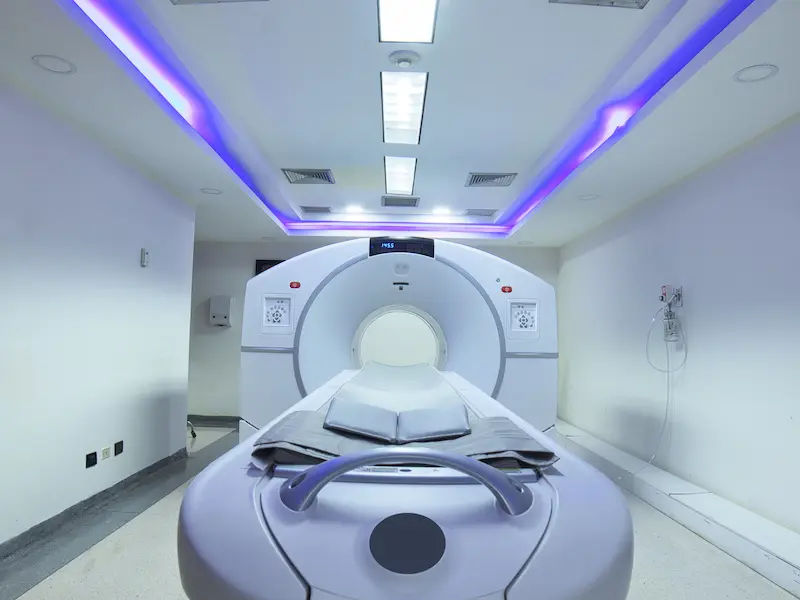Pre-Marital Lab Tests Every Couple Should Know About
Planning to get married? Learn about essential pre-marital lab tests for genetic, infectious, and fertility health to ensure a strong, informed start to your life together.


As you prepare for marriage, there is more to think about than just the wedding plans and shared goals. A pre-marital health checkup is a thoughtful and important step that can help you build a healthy future together. These tests offer more than a general overview of wellness. They provide valuable information about your individual and combined health, including possible hereditary risks and factors related to fertility.
Recognising these health factors early can help you avoid future medical issues, make informed choices about family planning, and feel more comfortable discussing your medical history with your partner or healthcare provider. Delaying this step may lead to health issues down the road, particularly related to inherited conditions or fertility, that might have been easier to manage with early awareness. Fortunately, specific lab tests can help your doctor assess potential risks, check for infections, and offer guidance based on your unique health profile. This guide highlights the essential lab tests every couple should consider before marriage to help you start your life together with clarity and confidence.
Why Pre-Marital Health Checks Are Important?
Pre-marital health checkups are a practical and responsible step for couples preparing to start a life together. They go beyond confirming current health and offer valuable insights that support long-term well-being for both partners. Here’s why they’re important:
- Screen for Genetic Conditions: Testing can detect inherited disorders such as thalassemia or sickle cell anaemia, enabling couples to make informed decisions about family planning and take steps to reduce health risks for their future children.
- Detect Infections Early: Screening for sexually transmitted infections (STIs), hepatitis, and other communicable diseases can prevent transmission between partners or to future children.
- Understand Fertility Health: Fertility-related tests help assess reproductive health, especially if either partner has known concerns or wishes to plan ahead.
- Encourage Health Conversations: Talking openly about your health fosters transparency and trust, strengthening your relationship as you prepare for a shared future.
- Prepare for a Healthier Future Together: Identifying and addressing health concerns early enables couples to take preventive measures and access timely care, creating a strong foundation for a healthy family.
By understanding each other's health status, couples can make thoughtful, informed choices before marriage and strengthen the foundation for a healthy partnership and family life.
When to Consider Pre-Marital Lab Tests?
It's highly recommended for all engaged couples to discuss pre-marital lab tests with their doctor well in advance of their wedding. This allows ample time for testing, results, and any necessary follow-up discussions or treatments. You should specifically consider these tests if:
- You are an engaged couple planning a marriage.
- You are considering starting a family in the future.
- There is a family history of genetic disorders (e.g., sickle cell anaemia, thalassemia, cystic fibrosis).
- You have had previous sexual partners.
- You have any unexplained health symptoms that might be related to infections or hormonal imbalances.
- You want to be proactive about your health and family planning.
Being proactive about these tests empowers you to address potential health concerns early, leading to more effective management and better long-term outcomes for your shared life.
Key Lab Tests Every Couple Should Know About Before Marriage
To get a comprehensive picture of your combined health and future family planning, specific lab tests can provide crucial insights. These tests help your doctor identify hereditary risks, screen for infections, and offer early insights into fertility compatibility.
Genetic Screening
What it measures: These tests check for carrier status of certain genetic conditions. Common screenings include:
- Thalassemia: A blood disorder affecting haemoglobin production, prevalent in certain populations.
- Sickle Cell Anaemia: Another inherited blood disorder, particularly common in people of African, Mediterranean, and South Asian descent.
- Cystic Fibrosis: A genetic disorder affecting the lungs and digestive system.
- Other conditions based on ethnic background and family history.
Why it's important: If both partners are carriers for the same recessive genetic condition, there's a higher chance their children could inherit the condition. Knowing your carrier status allows for informed family planning decisions and genetic counselling.
Get These Tests Before Marriage
Sexually Transmitted Disease (STD) Panel
What it measures: This panel screens for common STDs that can be transmitted between partners and may affect future fertility or health.
Common tests include:
- HIV (Human Immunodeficiency Virus): Causes AIDS.
- Hepatitis B & C: Viral infections that affect the liver.
- Syphilis: A bacterial infection.
- Herpes Simplex Virus (HSV): Causes genital herpes.
- Chlamydia & Gonorrhea: Bacterial infections that can cause infertility if untreated.
Why it's important: Screening for STDs protects both partners' health and prevents transmission. Early detection allows for treatment, which can prevent long-term complications and ensure a healthy pregnancy if you plan to have children.
Fertility-Related Markers
What it measures: These tests provide early insights into potential fertility factors for both partners.
- For Women:
- AMH (Anti-Müllerian Hormone): Provides an estimate of ovarian reserve (egg supply).
- FSH (Follicle-Stimulating Hormone) & LH (Luteinizing Hormone): Hormones involved in ovulation.
- Prolactin: High levels can interfere with ovulation.
- Thyroid Function Tests (TSH, Free T3, Free T4): Thyroid imbalances can affect fertility and pregnancy outcomes.
Book Apollo Fertility Panel Here
For Men:
- Semen Analysis: (Not a blood test, but crucial) Evaluates sperm count, motility, and morphology.
- Testosterone Levels: Important for sperm production and male fertility.
- FSH & LH: Can indicate issues with sperm production.
Check Your Testosterone Levels Here
Why it's important: Identifying potential fertility challenges early allows couples to seek advice, explore options, and plan their family journey with more information. It can reduce stress and anxiety later on.
Blood Group and Rh Factor
- What it measures: Determines the blood group (A, B, AB, O) and Rh factor (positive or negative) for both partners.
- Why it's important: This is crucial for future pregnancies. If the mother is Rh-negative and the father is Rh-positive, there's a risk of Rh incompatibility, which can affect the baby's health. Knowing this beforehand allows for preventive measures during pregnancy.
Complete Blood Count (CBC)
- What it measures: A general blood test that provides information about red blood cells, white blood cells, and platelets.
- Why it's important: Can detect conditions like anaemia (common in women), which can cause fatigue and affect overall health, especially during pregnancy. It also screens for general infections or other blood disorders.
The results from these specific lab tests, combined with your medical history and a thorough discussion with your doctor, will help you and your partner accurately assess your combined health and plan for your future. This detailed understanding allows you to make informed decisions and build a strong, healthy foundation for your marriage.
Get Tested Easily with Apollo 24|7
If you're an engaged couple considering pre-marital lab tests, choosing a reliable and convenient testing service is important. Apollo 24|7 makes this simple by providing accurate lab tests with quick results. This helps you and your doctor understand your combined health clearly and create a personalised plan for your well-being.
Why Choose Apollo 24|7 for Your Pre-Marital Health Checkups?
- Comprehensive Test Panels: Apollo 24|7 offers access to a premarital test package that includes key screenings such as genetic testing, STD panels, and fertility-related markers, along with the option for confidential test booking for couples. These tests help identify inherited conditions, detect infections that could affect either partner or future children, and assess reproductive health, supporting informed decisions and a healthy start to married life.
- NABL-Accredited Labs: Tests are done in labs certified by the National Accreditation Board for Testing and Calibration Laboratories (NABL), ensuring accurate and trustworthy results.
- Home Sample Collection: Enjoy the convenience of blood sample collection at your home, saving you time and providing privacy.
- Easy Online Booking: Schedule your test quickly and easily through the Apollo 24|7 app or website.
- Fast Digital Reports: Receive secure, detailed test reports online promptly, ready to share with your doctor.
- Trusted Brand: Benefit from the trusted expertise and healthcare legacy of Apollo Hospitals Group, one of India’s most respected medical networks.
By choosing Apollo 24|7, couples gain access to reliable and confidential diagnostic services that support informed health decisions before marriage.
For the most accurate and up-to-date pricing on the Pre-Marital Test Package, it is recommended to visit the Apollo 24|7 website, use their mobile app, or reach out to their customer support. Prices may vary depending on your location, current offers, and membership benefits.
Conclusion
Pre-marital lab tests are a thoughtful and proactive step for any couple building a life together. They offer invaluable insights into potential hereditary risks, screen for infections, and provide early understanding of fertility compatibility.
By undergoing these essential checkups, you empower yourself and your doctor to identify and address any concerns early. This leads to informed family planning, prevents the transmission of infections, and fosters open communication about health within your relationship. Investing in these tests before marriage is an investment in a healthier, more confident, and happier future together. If you're an engaged couple, consult your doctor to discuss which pre-marital tests are right for you, and take this proactive step towards a lifetime of shared well-being.


.webp)

.webp)
